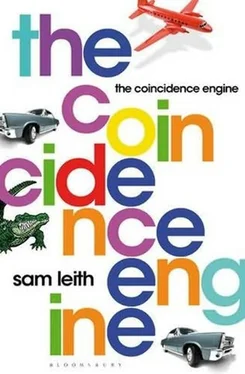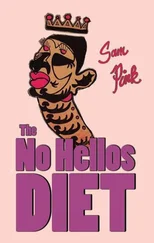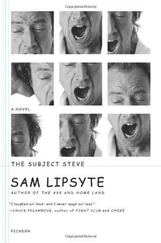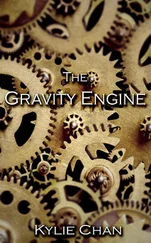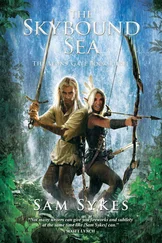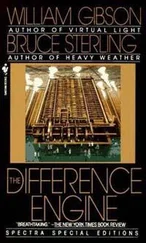The woman squawked as Isla barged out of the shop to give chase. She left her backpack in the shop, yanked open the door and hop-skipped after him in her ridiculous socks.
‘ M’sieu! M’sieu! ’
Half of her had imagined that if she ever met him he’d run or yell at her. She wasn’t quite prepared for him simply to stop. He braked, and turned round. He looked startled, but not yet annoyed.
‘ Pardon… pardon …’
‘ Quoi? ’
‘ Nicolas? ’
‘ Quoi? ’
‘ Je suis Isla .’
His look was shifting from startled and sympathetic, to alarmed.
‘Isla Holderness – nous avons …’ She remembered he spoke English. They’d exchanged letters in English. ‘It’s me, Isla. We’ve – I mean, I’ve sent you letters. I’m Isla Holderness.’
‘ Mam’selle …’
The man on the bicycle was kindly. He stayed put for her stammering explanation, and was gentle in telling her that the words ‘Isla Holderness’ meant nothing to him in any order at all, and that he was certain they had never exchanged letters. He was a handyman, not a scholar – he had used the word ‘scholar’, clumsily, when she’d said ‘mathematician’. He laughed when she showed him the photograph, though. He had to admit, it looked like him. No, no apology necessary. Au contraire . His name was Pascal. Enchanté .
But a mathematician? Lived alone? Pascal thought he might know him. Yes, bald. Not looking like this, though. He was an eccentric, sure enough – Pascal didn’t remember his name but it might have been Nicolas. He looked at the photograph, blotting out the lower half of the face with his thumb and looking at the eyes. Isla could see they were different, now, Pascal and Banacharski, about the eyes.
They were still standing in the street. It was a small town and no cars had come. Pascal rolled his bicycle back and forth with his hips, turned the handlebars lazily with his free hand. He seemed to be smirking.
‘ Peutàtre .’ It was an old photograph. He couldn’t tell. But there was this type living in a shack up above Tragine. Pascal had gone to fix his septic tank. Had a lot of paper. He was – Pascal made a waving gesture with his hand… Big beard, Pascal said. Like a blaireau . People talked about him. Jewish, he thought. Maybe an inventor?
He left her after a few minutes, scribbling his phone number, as an act of gallantry, with a blunt stub of pencil on a bit of cardboard torn from a packet of cigarette papers. She folded this once and tucked it into the coin pocket of her jeans. They had made friends, though as she watched him cycle away she noticed that the bicycle was wagging less than previously and his head was wagging more.
She went back into the boulangerie and endured a foul look. The baguette, which she ate sitting on a low wall in the sunshine, was delicious. She spent the night in a field outside Freychenet, more excited than she was prepared to acknowledge to herself.
Now Isla is walking up, leaving the last outbuildings of the farm she passed behind her. The cart track is dry, and the sun has baked worm-curls of mud on it. Her new walking boots bash satisfyingly and painlessly off them. As a contour slopes round she glimpses the roof of a wooden cabin. The quarter-acre of land in front of it has been raked out flat and hoed, and there are lines of bamboo poles with brilliant green-yellow bean shoots curling around them. Chickens scratch in the dirt.
She doesn’t think that Banacharski knows she is coming to look for him. She underestimates how small these towns are, and how close together. Banacharski knows she’s coming.
He didn’t know, at first, whether he wanted to be found. But now he sees her starting up the path towards him, smiling, and he thinks that he has been too lonely for too long.
‘So, Jones,’ said Bree. ‘This thing. This thing you have.’
It had been bugging Bree all afternoon, and she had been bugging Jones with it. It wasn’t something Bree could quite make sense of. And – she being a naturally sceptical person – it wasn’t something she completely believed, either. It was far from impossible that this was something Red Queen was doing just to mess her about. That Jones was a spy, or an actor, or some other damn thing. Indeed, that this whole thing might be some sort of fieldwork assessment exercise.
Jones didn’t say anything.
They were in the car, and Jones was looking out of the windshield at the road. They were on the road west out of Atlanta heading for Birmingham. The sun was low in the sky ahead of them. They reckoned the kid was on the move, and that he was heading west.
Bree had asked how they knew that and Red Queen had said something about triangulation. They had tried the idea of using fluctuations in the ambient spread of probabilities to track the device. They conjectured that its effect on the world might leak out from it – little subtle ripples of unlikelihood, little freaks, unexpected variations from the mean could be discerned if you looked at large enough bodies of data. Their conjecture – unless what they were seeing was no more than the effects of chance itself – seemed to have been borne out.
They were monitoring regular big spreads: sports events, the patterns of roulette wheels and hands dealt in the major gambling centres of the North American mainland. Of course – and Bree would never have doubted it – they had access to those data in real time. Over the last several hours there had been spikes, outliers, runs of aces, improbable snake eyes, statistically significant fluctuations.
Red Queen didn’t go into detail – just hints. Bree imagined low-level employees sitting in safe houses in all fifty states flipping quarters every ten seconds and noting down the results: ‘Heads, tails, heads, heads, tails, heads, heads, heads, heads, coin landed on edge, heads, heads, heads…’ Whatever was measurable was measured.
Wispy though it was, all these variations, plotted together, seemed to signal some sort of gradient, something geographical, arranged around a moving focus. And the data was consistent with that focus heading westwards at approximately the speed of an automobile travelling down a highway. Crudely, as Red Queen explained it, the closer to this thing you got, the less likely it was that you’d roll a four one time in six. Dice were behaving themselves on the eastern seaboard, Red Queen said. Dice were becoming more unruly to the west.
That, then, was the weather report: that was the state of chance. Things were getting more unlikely in the south-western United States of America, with a front of downright implausible moving in from the east. Conditions in Atlanta and points east were calming, with nobody expected to beat the house for the foreseeable future.
‘This thing,’ Bree repeated. ‘Does it make life fun?’
‘I don’t understand.’ Jones said that to a lot of enquiries. Bree had learned to persevere. She stopped talking, and looked at the side of his face like he was a Sudoku.
‘Knock knock,’ said Bree.
Jones didn’t say anything.
‘I said: knock knock. You know about that, Jones. Don’t pretend you don’t. You grew up in some laboratory somewhere you never got told knock knock jokes?’
‘I know knock knock jokes. I just don’t know why they make you laugh.’
‘So you know what you say?’
‘I know.’
‘So say it.’
‘Who’s there,’ said Jones, but he said it without a question mark.
‘Boo,’ said Bree.
‘I’ve heard that one,’ said Jones.
‘Say it for me, Jones,’ said Bree with a wheedling intonation. If you’d been watching carefully you could have identified her coaxing manner as flirtatious, almost.
Читать дальше
